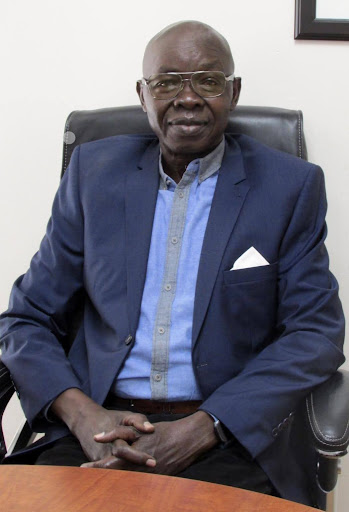
By Emily Kim Jenkins, Contributing Writer
Walter Lam exudes an unassuming elegance. From the prolific, international impact of his work to his storied personal journey to the States, it may be fair to expect Lam to be jaded or stern. Instead, he has a warm and ready laugh, and his words are thoughtful and measured.
After coming to the United States as a Ugandan refugee in 1986, Lam sought out immigration and refugee support and struggled to find any services specifically for Africans. In 1989, he founded the Alliance for African Assistance in San Diego, a resource for immigrants and refugees that serves all nationalities. With offices in California, Uganda, Kenya and Italy, the Alliance has resettled nearly 15 thousand refugees, helping them find work and housing. It offers translation services, medical and dental assistance, in-home care and more resources.
Immigrants and refugees face challenges that may seem insurmountable at first glance. There are crucial technical aspects of building a life in America, such as finding work, knowing how to get a doctor’s appointment or finding housing. Lam notes that the Alliance helps people with the tasks and basic privileges Americans often take for granted, such as showing people how to use electric kitchen appliances.
These are not the only roadblocks to success in American life, however. In recent years, presuppositions have been fueled by partisan socio-political messaging. That can create hostile environments for those seeking refuge, Lam says. A 2023 National Institute of Health (NIH) study of Syrian and Iraqi refugees in San Diego found that, in the wake of 2017’s “Muslim ban” which restricted migration for Middle Eastern and North African (MENA) refugees, Islamophobia spiked in the United States and led to significant health challenges for Arabic-speaking refugees, whether they were Muslim or not.

“There was a time where the word ‘refugee’ was interchangeable with ‘terrorist,’ as well,” Lam said. “That was a very, very difficult time. But the important thing for me is that I don’t mix and mingle with people that I know have that mentality. Why waste my time? They have already made up their mind.”
Discrimination can be a significant factor in the poor health of refugees in America, according to a PubMed analysis of over 300 studies done on the subject. Quantifying ‘hate’ is a difficult task, and when seeking to understand hate’s presence in a community, hate crime data alone is not enough to get a complete picture. Many hate crimes go unreported, according to researchers at the National Institute of Justice, and instances of discrimination and prejudicial behavior are not included in this data. Making sure these needs are met and issues addressed often falls on groups like the Alliance.
Luckily, these groups often can rely on each other, sharing resources and staff. With an influx of refugees from Afghanistan and Ukraine in recent years, the Alliance keeps very busy, seeing people from all walks of life. As an affiliate of the Ethiopian Community Development Council, it is connected to over 20 organizations with similar missions across the country. Despite the ongoing challenges both inside and outside of the borders of the United States, the heart of the “American Dream” remains the same as it did centuries ago.
“To a lot of us refugees, it is freedom. That’s what brings us here. Because we have come from an oppressive system that, if we had not left, probably we would be dead. So the dream here is freedom,” Lam said. “Right now, we ask ‘where is that freedom?’” He asked with a laugh. “We are so divided… the position that you are either with me or you’re my enemy… It’s a difficult time but I still see that it is much better in America compared to places where we have fled from.”
Such an outlook is crucial. Lam remains optimistic, despite the mounting challenges of an

increasingly divided political landscape. He looks to the future with bright eyes.
“Hope is what keeps me going,” he said. “For me the most important thing is just hoping and praying that we will keep our doors open to refugees. These are people that have gone through so much. [We want to] allow them to start their new life.”
To get in touch with and support the Alliance for African Assistance, visit www.alliance-for-africa.org/, call (619) 286-9052 or email [email protected]. The Alliance also owns and operates Safari Seconds, a thrift store where quality donations are accepted and all proceeds go towards the Alliance.
___
This resource is supported in whole or in part by funding provided by the State of California, administered by the California State Library in partnership with the California Department of Social Services and the California Commission on Asian and Pacific Islander American Affairs as part of the Stop the Hate program. To report a hate incident or hate crime and get support, go to CA vs Hate.


